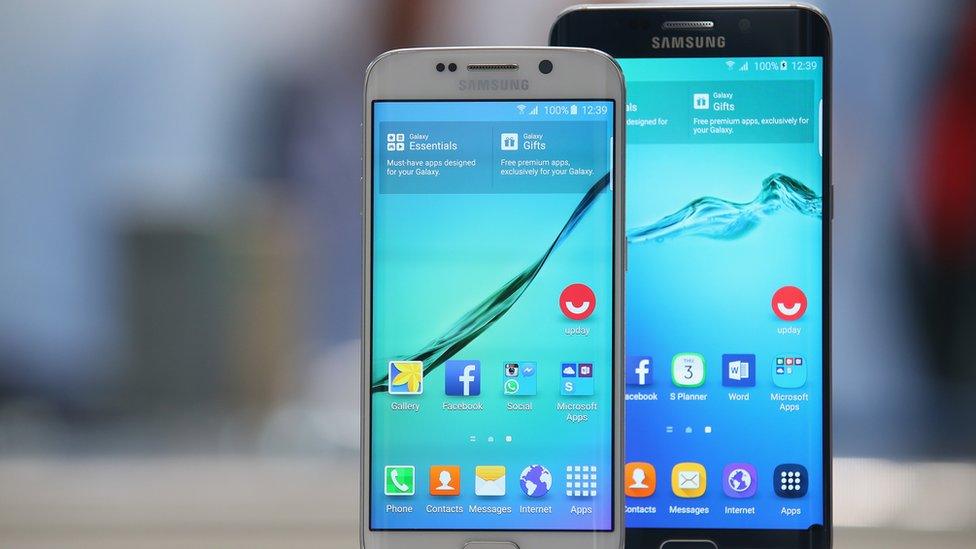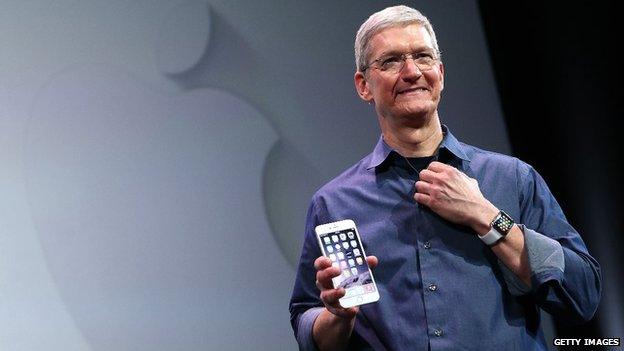Samsung allows ad-blocking on new mobile web browser
- Published

Samsung phones running Android will now allow ad-blockers to be added to the web browser
The latest version of the default web browser on Samsung's Android phones will allow users to install ad-blocker extensions.
The move mirrors an update by Apple in September that allowed ad-blockers to be installed as extensions for the Safari browser.
Blockers on Samsung phones will have to be added in the same way and will not come as standard.
The new browser has begun rolling out for Android Lollipop or higher users.
Popular ad-blockers, Adblock Fast, external and Crystal, external, have already been made available for Samsung phones.
As well as making web pages less cluttered, ad-blockers often improve browsers' performance - and reduce the draw on phone batteries and data plans.
'Massive dissatisfaction'
"Those who use ad-blockers will likely use other browsers than the default one," said advertising industry analyst Daniel Knapp at IHS.
"It's nonetheless important for Samsung to jump on the ad-blocking bandwagon."
"It wants to show customers that it is a premium brand that protects them as well as Apple."
Mr Knapp also told the BBC there had been a "seismic change" in the ad industry, in which marketing budgets were increasingly being moved from traditional forms of advertising to, for example, sponsorship deals.
He said it was those most highly prized by advertisers, young and affluent users, who were more likely to use ad-blockers in the first place.
"I think it's an expression of massive consumer dissatisfaction with the way the ad industry works," he said.

The latest generation of Apple's mobile operating system allows ad-blocking extensions
Ad-blockers work by removing scripts in web page code that would otherwise pull content from ad networks' servers.
In November, 18% of British adults online were using some form of ad-blocker, up 3% from June, according to a report from the Internet Advertising Bureau (IAB), external.
'Adverse' effects
Meanwhile, in Facebook's annual financial filing, external, the social network announced advertising earnings of $5.64bn (£3.9bn) for the fourth quarter of 2015 but warned ad-blockers could "adversely affect" future profits.
"If such technologies continue to proliferate, in particular with respect to mobile platforms, our future financial results may be harmed," it said.
But Mr Knapp said companies such as Facebook were less likely than other content publishers to be affected by mobile web ad-blockers because ads could still be delivered via their third-party apps.
"Think of ad-blockers being admitted to iOS 9," he said.
"They were all exclusively focused on the in-browser environment - not for third-party apps like Facebook."
- Published8 September 2015

- Published27 May 2015

- Published5 December 2013
